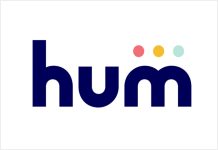Clarivate Expands its Academic AI Platform, Introducing Agentic AI for Research and Learning
Clarivate, a leading global provider of transformative intelligence, today announced the expansion of its Academic AI Platform, helping institutions harness agentic AI to accelerate productivity, save time for researchers, students and staff, and engage users in the digital environments they already use.
New research integrity AI tool added to Springer Nature’s growing portfolio
A new AI tool to identify irrelevant references in submitted manuscripts has been launched for use across Springer Nature’s journals and books. The tool is the latest AI-driven tool that has been developed in-house at Springer Nature to weed out problematic submissions and ensure the veracity of the publication record.
IGI Global Scientific Publishing Expands ResearchGate Journal Home Partnership to Cover Full Journal Portfolio
IGI Global Scientific Publishing, dedicated to "Publishing Tomorrow's Research Today" since 1988, and ResearchGate, the professional network for researchers, are pleased to announce the expanded coverage of IGI Global Scientific Publishing journals through Journal Home.
67 Bricks named ‘Finalists’ for three British Data Awards
67 Bricks has been shortlisted for three awards in this year’s British Data Awards, in the categories ‘Consultancy of the Year’, ‘Generative AI Initiative of the Year’ and ‘Data for Good Consulting Initiative of the Year’ for our work in building AI-generated podcasts.
Taylor & Francis to make more translated books available more quickly using advanced AI
Following a program of rigorous testing, Taylor & Francis has announced plans to use AI translation tools to publish books that would otherwise be unavailable to English-language readers, bringing the latest knowledge to a vastly expanded readership.
Silverchair & Hum Announce Alchemist Review and ScholarOne Manuscripts Partnership
Silverchair and Hum have announced a strategic partnership that integrates Hum's recently launched Alchemist Review with ScholarOne Manuscripts. This collaboration builds on the existing Silverchair Universe partnership between the two organizations and will allow publishers, editors, and reviewers to access Alchemist Review’s key manuscript insights including central claims, methodology, citation integrity, and research originality.
ResearchGate and IntechOpen announce new Journal Home partnership for their open access journal portfolio
ResearchGate, the leading professional network for researchers, and IntechOpen, a prominent open access and open science publisher, have announced a new partnership that will increase the reach and brand visibility of IntechOpen’s journals through Journal Home.
Elsevier launches ScienceDirect AI to transform research with rapid mission-critical insights from trusted content
Elsevier, a global leader in advanced information and decision support, today launches ScienceDirect AI opens in new tab/window, a cutting-edge generative AI tool for researchers. It is designed to transform the way researchers work by enabling them to instantly extract, summarize and compare trusted insights from millions of full-text articles and book chapters on ScienceDirect opens in new tab/window, the world’s largest platform for trusted, peer-reviewed research.
The Association for Materials Protection and Performance Launches Unified Digital Library on the Silverchair...
Silverchair and the Association for Materials Protection and Performance (AMPP) announced the launch of the new AMPP (content) Store on the Silverchair Platform. The new site serves as a repository for AMPP's vast range of content, including primary research, use cases, industry standards, and technical and professional publications.
Wiley Releases AI Guidelines for Authors
Wiley, one of the world’s largest publishers and a global leader in research and learning, released a set of guidelines on the responsible and effective use of artificial intelligence (AI) in authorship this week at the London Book Fair. In the new guidelines and accompanying FAQs, Wiley provides suggestions to authors on how to utilize AI tools in their manuscript preparation while preserving the author’s authentic voice and expertise, maintaining reliable, trusted, and accurate content, safeguarding intellectual property and privacy, and meeting ethics and integrity best practices.
ASTM International Selects Silverchair to Host ASTM Digital Library
Silverchair announced today a new partnership with ASTM International, an internationally recognized leader in engineering standards and technical publications, to migrate the ASTM Digital Library to the Silverchair Platform.
Hum Launches Alchemist Review, an AI-Driven Peer Review Solution
Hum is excited to announce the launch of Alchemist Review, an advanced AI-powered tool designed to enhance the efficiency, consistency, and quality of the peer review process. Developed in collaboration with GroundedAI, Alchemist Review assists editors and reviewers by extracting and analysing text, images and citations within manuscripts.
























